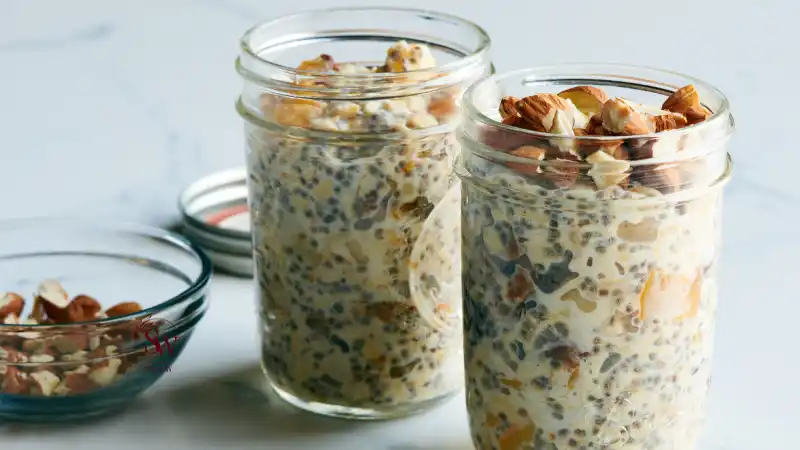
A healthy breakfast sets the tone for the day, providing the essential nutrients and energy needed to kickstart your morning. In this comprehensive guide, we delve into the key elements that make up a truly healthy breakfast meal, supported by insights from reputable sources and nutritional experts.
Is Breakfast the Most Important Meal of the Day?
The belief that breakfast is the most important meal of the day is a long-standing notion, but recent research challenges its universal significance. While some studies suggest potential benefits, such as improved cognitive function and weight management, the importance of breakfast appears to vary among individuals. Nutrition experts, including Dr. Rachel Clark and Dr. Sarah Johnson, emphasize the need for personalized nutrition, acknowledging that some people may thrive without a traditional morning meal. Rather than focusing solely on breakfast, a balanced and holistic approach to overall daily nutrition, considering individual preferences and body signals, emerges as a more nuanced perspective in promoting optimal health and well-being.

The Importance of a Nutrient-Rich Breakfast
A. Fueling Your Body and Mind: A study published in the American Journal of Clinical Nutrition highlights that a well-balanced breakfast contributes significantly to improved cognitive function and better concentration throughout the day.
B. Managing Weight: According to the National Weight Control Registry, individuals who regularly consume a nutritious breakfast are more likely to maintain a healthy weight. This contradicts the misconception that skipping breakfast aids in weight loss.
Components of a Healthy Breakfast

A. Whole Grains: The Harvard T.H. Chan School of Public Health recommends incorporating whole grains into your breakfast, such as oatmeal or whole-grain toast. These provide a steady release of energy and essential fiber for digestive health.
B. Protein Power: A protein-rich breakfast is essential for muscle repair and satiety. The American Journal of Clinical Nutrition reports that a high-protein breakfast can help control appetite throughout the day.
C. Fruits and Vegetables: The Centers for Disease Control and Prevention (CDC) advocates for the inclusion of fruits and vegetables in breakfast for their abundance of vitamins, minerals, and antioxidants.
D. Healthy Fats: The Mayo Clinic emphasizes the importance of incorporating sources of healthy fats, such as avocados and nuts, for heart health and sustained energy.
Common Misconceptions about Breakfast
A. Myth: Skipping Breakfast Helps in Weight Loss: Contrary to popular belief, studies like the one conducted by the Obesity Society have shown that skipping breakfast may lead to overeating later in the day, potentially contributing to weight gain [7].
B. Myth: Sugary Cereals are a Healthy Choice: While convenient, sugary cereals can cause a rapid spike in blood sugar levels. The American Heart Association recommends opting for cereals with less added sugar for a heart-healthy breakfast [8].
Creating a Balanced Breakfast Plan
Sample Breakfast Ideas:
- Greek yogurt with fresh berries and a sprinkle of chia seeds.
- Whole-grain toast with avocado and poached eggs.
- Oatmeal topped with sliced bananas and a drizzle of honey.
Meal Prepping Tips: To save time during busy mornings, consider preparing components of your breakfast in advance. Overnight oats and pre-cut fruits can be assembled quickly, ensuring a nutritious start to your day.
What You Should Not Eat for Breakfast

While focusing on the positive aspects of a healthy breakfast is essential, it’s equally important to be mindful of choices that may hinder your nutritional goals. Steering clear of certain breakfast options can contribute to better overall well-being. Avoid highly processed and sugary cereals, as they can lead to a rapid spike in blood sugar levels and subsequent crashes. Pastries and sugary baked goods may be tempting, but their high sugar and refined flour content can provide a quick energy boost followed by a slump. Additionally, steer clear of breakfast items loaded with saturated fats and excessive salt, as they may contribute to cardiovascular issues over time. Being mindful of these less desirable breakfast choices ensures that your morning meal sets a foundation for sustained energy and optimal health.
Also Read: Can Sugar Keep You Awake
How to Meal Prep Breakfast Sandwiches
For those seeking a convenient and nutritious breakfast option, meal-prepping breakfast sandwiches can be a game-changer.
- Choose whole-grain English muffins or bread for added fiber.
- Cook eggs in advance, opting for scrambled, poached, or omelet-style.
- Incorporate a lean protein source like turkey or chicken sausage.
- Add veggies such as spinach, tomatoes, or bell peppers for additional vitamins and minerals.
- Assemble the sandwiches and wrap them individually for easy storage.
- Use a microwave or toaster oven to reheat, ensuring a quick and satisfying breakfast on busy mornings.
- This straightforward meal prep strategy guarantees a delicious and balanced breakfast, contributing to a stress-free and nutritious start to your day.
High-Protein Egg Muffins:

Ingredients:
- 8 large eggs
- 1 cup diced vegetables (spinach, bell peppers, tomatoes, onions)
- 1/2 cup diced lean ham or turkey
- 1/2 cup shredded cheese (optional)
- Salt and pepper to taste
- Cooking spray
Instructions:
- Preheat your oven to 350°F (175°C) and grease a muffin tin with cooking spray.
- In a bowl, whisk the eggs until well beaten. Season with salt and pepper.
- Stir in the diced vegetables, lean ham or turkey, and shredded cheese if desired.
- Pour the egg mixture evenly into the muffin cups, filling each about 3/4 full.
- Bake in the preheated oven for 20-25 minutes or until the egg muffins are set and slightly golden on top.
- Allow the muffins to cool for a few minutes before using a knife to loosen the edges and remove them from the tin.
- Serve immediately or store in an airtight container in the refrigerator for up to 3 days.
Protein-Packed Overnight Oats:

Ingredients:
- 1/2 cup rolled oats
- 1/2 cup Greek yogurt
- 1/2 cup milk (dairy or plant-based)
- 1 tablespoon chia seeds
- 1 tablespoon honey or maple syrup
- Fresh berries or sliced fruit for topping
Instructions:
- In a jar or container, combine rolled oats, Greek yogurt, milk, chia seeds, and sweetener of choice.
- Stir well to ensure all ingredients are evenly mixed.
- Cover the jar or container and refrigerate overnight or for at least 4 hours.
- In the morning, give the mixture a good stir and add a splash of additional milk if desired.
- Top with fresh berries or sliced fruit before serving.
These high-protein breakfast recipes are not only delicious but also great for meal prepping to ensure a nutritious start to your day. Adjust ingredients based on personal preferences and dietary needs.
Frequently Asked Questions (FAQ):
- How many calories should a healthy breakfast contain?
The caloric needs for breakfast vary based on individual factors such as age, gender, and activity level. However, a general guideline is to aim for a breakfast that provides around 20-25% of your daily caloric intake. - Is coffee a suitable beverage for a healthy breakfast?
While coffee can be part of a healthy breakfast, it’s important to moderate caffeine intake. Opt for black coffee or add a small amount of milk, and avoid excessive sugar or cream. - Can a smoothie be a nutritious breakfast option?
Yes, a well-balanced smoothie with fruits, vegetables, protein (such as Greek yogurt or protein powder), and healthy fats (like almond butter) can be a convenient and nutritious breakfast choice.
Read about: The Ideal Daily Caloric Intake for Women
Conclusion
Crafting a healthy breakfast is not only about satisfying hunger but also about nourishing your body with the right mix of nutrients. By incorporating whole grains, protein, fruits, and healthy fats into your morning routine, you set the stage for a day of sustained energy and well-being. Embrace the power of a wholesome breakfast, and watch as it transforms your health and vitality.



